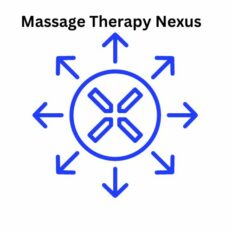Illicit businesses also known as sexually oriented businesses disguised as brothels and houses of prostitution doing business as a abound in every city, town, county and state. Our licensing laws only license massage therapists who practice massage making it difficult for enforcement to catch and stop these businesses from operating. Our massage establishment licenses in some states have made it so massage businesses are not clearly separated from these places of business.
Websites like www.rubmaps.com and www.backpage.com plague the profession constantly by someone often adding legitimate massage businesses. The NCBTMB does not allow CE classes on human trafficking, which is part of this topic, to be part of their approved list of courses. (List of Unacceptable Courses)
Our professional associations hide their head in the sand and avoid dealing with the issue.
History of Massage Being Entagled With Sex Work
I have written extensively on the history of this entanglement of massage with sex work. You can read it on my website www.lookbeforeyoubookamassage.com
The historical entanglement of massage therapy with sex work has long plagued the profession, creating challenges for legitimate practitioners. This association dates back to the late 19th and early 20th centuries when massage parlors often doubled as fronts for prostitution. This legacy has unfairly stigmatized the profession, leading to misconceptions and a lack of respect for skilled massage therapists. It is crucial to recognize and address this history to elevate the profession and distinguish it from illicit activities.
Efforts to separate massage therapy from the stigma of sex work have involved stricter regulations, professional licensing, and the establishment of reputable educational standards. By implementing rigorous training programs and requiring state-issued licenses, the industry has made significant strides in professionalizing massage therapy. These measures help to ensure that practitioners are well-trained and committed to ethical practices, thus distancing the profession from its tainted past. However, challenges remain as public perceptions are slow to change, and illegal operations continue to exist.
To further disassociate massage therapy from sex work, it is essential to continue advocating for clear, consistent regulations and promoting public awareness of the profession’s legitimacy. Engaging in educational campaigns, supporting reputable organizations, and fostering community partnerships can help reshape public perceptions. By highlighting the therapeutic benefits of massage and emphasizing the professionalism of its practitioners, the industry can work towards overcoming the historical stigma and gaining the respect and recognition it deserves.
Toolkits to help solve the issue
The Hands Off Our Name: Massage is Therapy. Initiative
Our communities have a long history of having illicit businesses disguised as massage therapy businesses for way to long. Everyday the news is full of stories about places and they are refered to as illicit massage businesses and massage parlors. This incorrect use of language reflects on the massage profession and it shows up in the many cases of sexual harassment/assault of massage therapists.
Most states have massage licensing laws that restrict the use of the words massage, massage therapy to licensed massage therapists who attend and pass massage school, pass a state exam, background checks and have other requirements to renew their license.
Massage is Therapy. Massage is NOT Sex work.
